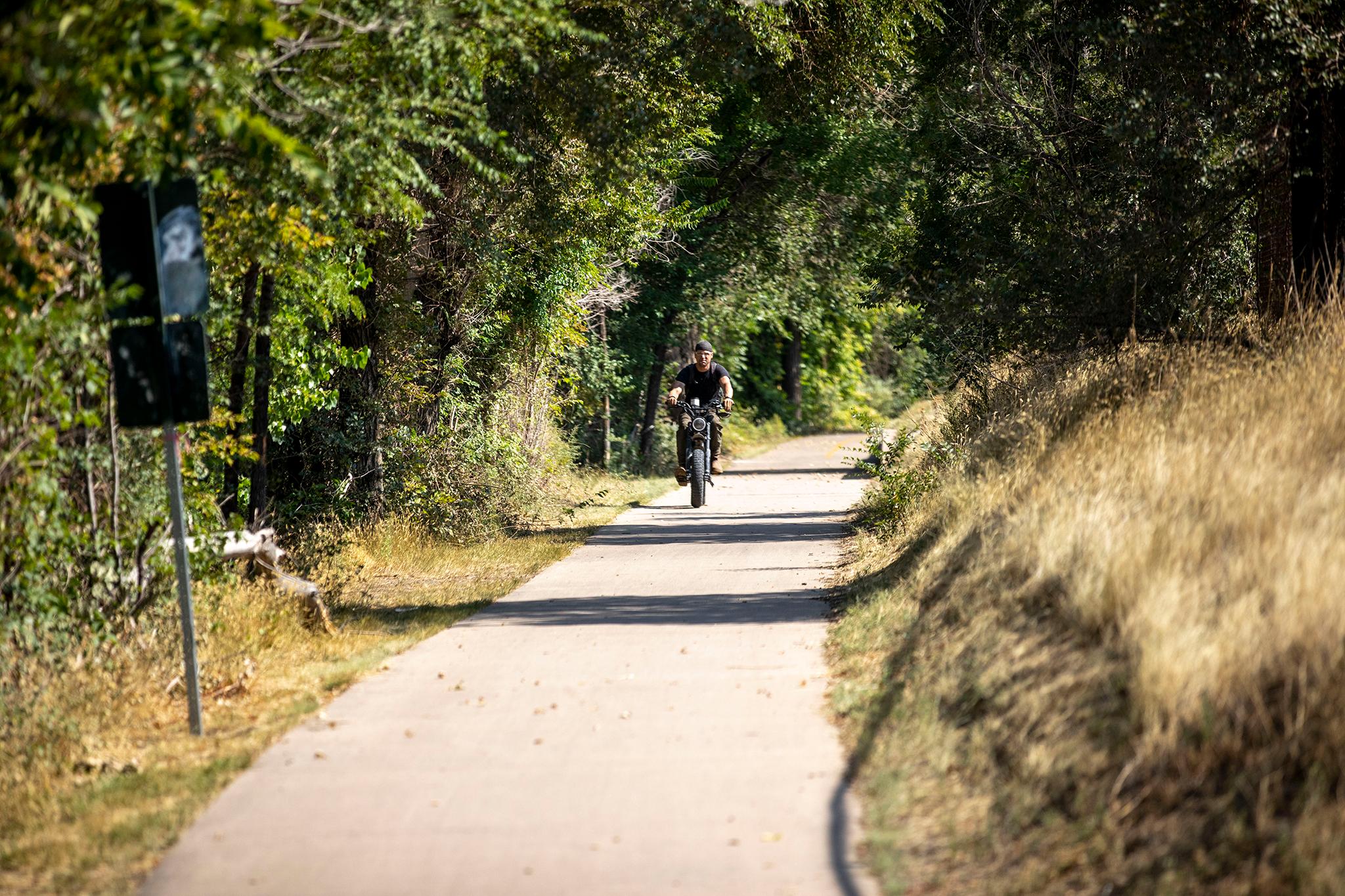The backbone of the Denver metro's regional trail network will get tens of millions of dollars worth of repairs and upgrades over the next eight years.
More than a half-dozen separate projects will result in a nearly completely rebuilt South Platte River Trail from "top to bottom" in Denver by 2030, said Cinceré Eades, resiliency and regional trails program supervisor for Denver Parks and Recreation.
"We know that we have a changing city," Eades said. "It's rapidly growing and we know that we need to provide multimodal options for people to move throughout the city, but also provide options that reduce our greenhouse gas emissions."
Highlights include the construction of a new section of trail on the west side of the South Platte just north of Alameda Avenue. Currently, the trail is on the east side there -- and directly adjacent to the roar of Interstate 25. Other sections will be upgraded as concrete slabs 12 feet wide, bordered by 4-foot-wide lanes of crushed rock.

The trail is used by hundreds of cyclists and pedestrians every day, according to city data. It's also become a refuge for people experiencing homelessness, as police and other agencies push them out of other parts of the city.
So the city is considering their presence in its designs for trail upgrades. This means including design elements like more lighting at underpasses and trail-access points. Planners will also try to eliminate hiding places by not planting certain types of trees. Eades added that park rangers currently work with police and human services teams to get resources to unhoused people.
"As parks and recreation, we're not going to solve the bigger problem," she said.
Here's a look at all of the city's plans, starting on its southern border:
Segment 1 -- Wesley Avenue to Grant Frontier Park
What: The city is working with the U.S. Army Corps of Engineers to rehabilitate the river on Denver's south side. Part of that larger project will include trail widening.
When: The trail work is still in the design phase. Construction could start in late 2023 or early 2024 and last 12 to 15 months.
Estimated cost: Just under $1 million for trail work
Segment 2 -- Mississippi Avenue to Johnson Habitat Park
What: This section of the trail has been closed since a retaining wall failed in 2020. The existing wall, which dates back to the 1970s, will be replaced and the trail itself will be upgraded, too.
When: Design is nearly done. But construction needs to happen during low-flow winter months. So it could start in late 2023 or early 2024 and last 15 to 18 months. The city is also evaluating whether it could temporarily reopen the trail in the summer of 2023, so pedestrians and cyclists can avoid the current, rather unpleasant detour on Jason Street.
Estimated cost: $8 million
Segment 3 -- Johnson Habitat Park to Bayaud Avenue
What: South Platte River Drive south of Alameda Avenue will be moved slightly to the west to allow the trail to be widened and for trees to be planted between the trail and the road. The work will also coincide with the Colorado Department of Transportation's planned rebuild of the Alameda bridge.
When: Construction could start late in 2023 and last 12 to 15 months.
Estimated cost: $10 million

Segment 4 -- Bayaud Avenue to Phil Milstein Park
What: Currently, the trail crosses the South Platte River just north of Bayaud and hugs Interstate 25 for about half a mile. A new section of trail will be constructed on the river's west side on city-owned land between the Denver Animal Shelter and the Denver Wastewater Management building.
"There's a chain-link fence," Eades said. "We're just going to move that over and open up all that space for the trail."
The existing trail next to the highway will be closed but could be used as a backup when the new trail is closed for maintenance.
A new bridge will connect the new trail with Phil Milstein Park. The city has deemed the existing, out-of-use Third Avenue bridge unsafe and will either rehabilitate it for pedestrian use or demolish it, Eades said.
When: Design is still in the early stages. The city hasn't yet found funding for it yet, so there's no estimated construction start date either. Construction could take 15 to 18 months. Residents who want this project to be prioritized should speak in its support when Denver applies for grants from the Denver Regional Council of Governments, Eades said.
Estimated cost: $11 million.
Segment 5 -- Sun Valley
What: The trail between Weir Gulch and 11th Avenue (and eventually 13th Avenue) will be upgraded as part of the redevelopment of Sun Valley
When: Unclear
Estimated cost: Unclear
Segment 6 -- I-25 to Confluence Park
What: Both trails on the east and west sides of the river will be upgraded as part of the big River Mile development near Ball Arena
When: Unclear
Estimated cost: Unclear
Segment 7 -- 31st Street to 51st Street
What: The city is upgrading the Globeville Levee and the section of trail that sits atop it
When: Sometime in 2024 or 2025
Estimated cost: $30 million to $40 million for both levee and trail work












